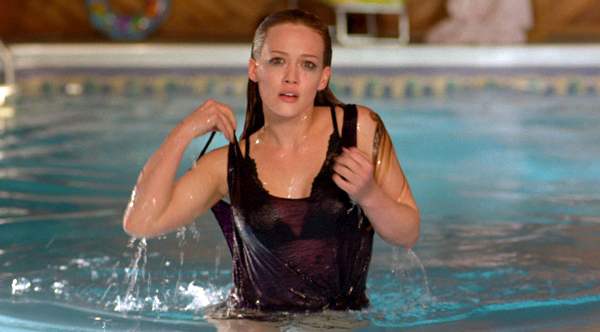|
Reviews of Recent Independent, Foreign, & Documentary Films in Theaters and DVD/Home Video

WHAT GOES UP It’s sad when a directorial debut betrays so much balls and so few brains. Such is the case with What Goes Up, a wobbly, confused dark comedy that’s anything—almost everything—except funny. The film reduces statutory rape, two suicides, child murder, teenage abortion, mental illness, voyeurism, journalistic sin, sex with a paraplegic, and the explosion of the Challenger space shuttle into some kind of inchoate sludge, sweetened only by a few genuine performances. Alas, you might think that the confluence of so many macabre and perverse plot points makes this movie sound weirdly alluring. So let’s back up. It’s 1986, and Campbell Babbitt (played by the terrifically toothy Steve Coogan) is a metro reporter at a New York City tabloid. When a key source-cum-bedfellow—a woman whose own son was the victim of a senseless murder—commits suicide, Babbitt is so distraught that he pretends she’s still alive and keeps writing about her. The lies pile up, Stephen Glass-style, until a reprieve comes in the shape of a small town puff piece. Christa McAuliffe, the New Hampshire science teacher, is about to rocket off to space in the ill-fated Challenger. Babbitt is assigned to drive up to the Granite State and observe the mood at her home school, where students are preparing a theatrical tribute entitled “Blast Off!” When Babbitt arrives, he’s blah about chasing the McAuliffe story and, instead, calls his old college roommate, Sam, who teaches at McAuliffe’s school—and who happens to be standing on a ledge just as the phone rings. When Babbitt shows up at Sam’s funeral, he encounters a group of keening, maladjusted students who profess cult-like reverence for their fallen teacher—“He was almost a priest,” they say. From here, the film nosedives as it invites lusty intrigues and touching life lessons, neither of which ever shows up. Coogan looks uncomfortable most of the time, which can be attributed partially to his bumbling, Brit thing, but also because he’s uneasy playing a cigarette-smoking object of desire. “You must be the reporter everyone wants to fuck,” a pretty wheelchair-bound student (played by Sarah Lind) tells him, but neither he nor the audience can believe her. The movie
is based on a stage play (written by director Jonathan Glatzer and
Robert Lawson), which makes sense since its thematic obesity and tedious
dialogue lend it the quality of an off-Broadway wincer. What will keep moviegoers from dozing off is a young
supporting cast led by Hilary Duff, who’s almost alarmingly convincing
as Babbitt’s ticklish teenage temptress, Lucy. Another standout is
Olivia Thirlby (Juno), who proficiently pouts and broods her way
through. Ultimately, though, good acting is always constrained by a bad
movie; it’s like watching a prima ballerina do a fouetté in a potato
sack. Stephen Heyman
|

